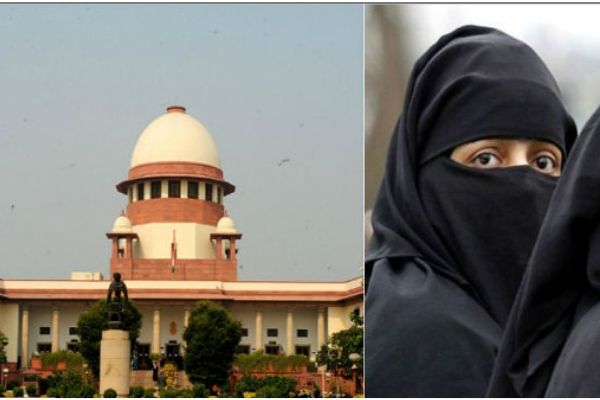For years, married women all over India have suffered a lot; facing the trauma of domestic abuse to the sudden proclamation of the dissolution of marriage by their husbands. In India, where ‘feminine power’ receives immense importance in the form of goddess worship by devoted believers, contradictorily, crime rates against women and girl children seem to be increasing at an alarming rate.
When we talk about the present judgment on Triple Talaq and the roots of its historical existence, we date back to the religious books of Islam, some of which have permitted men to end a marriage by uttering Talaq three times to his wife. However, the Government of India declared the practice as unconstitutional and asserted that whoever utters “instant Triple Talaq” through any modes of communication is liable to be punished with imprisonment of three years to life with a fine. However, the recent confrontation in Apex court by a few Muslim community scholars like Moulana Amir Rashadi Madani and Islamic groups like the Samastha Kerala Jamiathul Ulema and Kerala Jamiathul Ulema opposed the decisions by calling it unfair.
The public prosecutor and senior advocate Salman Khurshid had argued that the decision by the government had directed the severe punishment against the husband but failed to address the common objectives of the woman. Has the government done impressive work while constitutionally protecting the rights of every oppressed woman? If so, then why are the opposition parties questioning the authority about the verdict?
Earlier, domestic violence was largely prevalent and to some extent normalised over issues related to income, spacious living, hygienic food, and more. In most cases, extreme pressure from both parental sides resulted in the breaking of the bonding. Further, the kind of hardships any physically and mentally tortured woman faces is indescribable. In the very first instance, they are expected to be ready to face society’s annoying questions, shield themselves so as to protect them from the hypocrisy of family and the community members.
Shah Bano had endured all much pain and broke old customs when she exhibited the courage to stand in support of thousands of vulnerable women and knocked on the doors of the Supreme Court for justice. This led to mass protests across the conservative Muslim sections, asking her to withdraw the case since her rebellious actions could potentially trigger unrest and apparently destroy the virtue of Islam. This sensitive case could have not possibly advanced the marchings of depressed and isolated Muslim women around the globe without the relentless efforts of Shah Bano and the intervention of the then Prime Minister of India, Rajiv Gandhi.
Shah Bano, one of the victims of Triple Talaq, was mercilessly thrown out of her home along with her five children without any consideration of financial support from her husband Mohammed Ahmed Khan. The Supreme Court made significant changes in the Code of Criminal Procedure (CRPC), Section 125(3) which was applicable for Muslims from February 3, 1981 onwards, under which any divorced wife could accept maintenance cost from her husband only when found that she is not in the condition of paying living expenses by her own even after fulfilling three months of Iddat period after divorce.
However, the sense of relief, pride, and self-admiration were not achieved due to the impulsive and dissenting voices of Muslims who were urging that the act can violate certain tenets under Shariyat, which clearly states that within three months period any divorced woman can remain in a relationship with her husband. However, she was forced to vacate her place and even then there was no confirmation of the giving some of the mehr (bride price) from Khan.
Anyhow, with these outraged religious sentiments flaming in the atmosphere, Rajiv Gandhi’s regime was forced to declare it unlawful and implemented Muslim Women (Protection of Rights on Divorce) in the year 1986. I believe that the personal issues between two parties could have been resolved peacefully in the light of true wisdom only when the committed leaders could have shared the common platform with Constitutional institutions, but it took three decades to conclude.
Is The Message Of Clause Number 3 In Chapter 2 Of The Law Book Clear And Understandable To Everyone?
In my opinion, law and order were not compromised and the decision-makers have done a remarkable job in comprehending the controversial matters of previous cases. My apprehension and concerns are if the convicted husband is found guilty and sent behind the bars who will be the caretaker or perhaps the guardian for the dependent wife? Recently, it had become a piece of trending news that for some insignificant reason or the other, husbands had abandoned their wives.
Hence as responsible citizens, it is our prime duty to question the supreme body to offer some kind of compensation for those financial unsecured and dependent divorced women. Also, it would be highly appreciated and encouraged that the central government takes strict legal actions against those men who tend to marry only to satisfy their demands and runaway with nothing left behind for their beloved ones.

